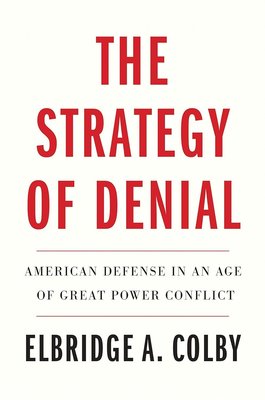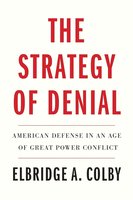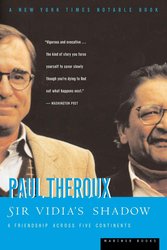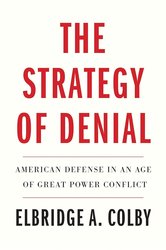Why and how America’s defense strategy must change in light of China’s power and ambition—A Wall Street Journal best book of 2021 “This is a realist’s book, laser-focused on China’s bid for mastery in Asia as the 21st century’s most important threat.”—Ross Douthat, New York Times “Colby’s well-crafted and insightful Strategy of Denial provides a superb and, one suspects, essential departure point for an urgent and much-needed debate over U.S. defense strategy.”—Andrew F. Krepinevich, Jr., Foreign Affairs Elbridge A. Colby was the lead architect of the 2018 National Defense Strategy, the most significant revision of U.S. defense strategy in a generation. Here he lays out how America’s defense must change to address China’s growing power and ambition. Based firmly on the realist tradition but deeply engaged in current policy, this book offers a clear framework for what America’s goals in confronting China must be, how its military strategy must change, and how it must prioritize these goals over its lesser interests. The most informed and in-depth reappraisal of America’s defense strategy in decades, this book outlines a rigorous but practical approach, showing how the United States can prepare to win a war with China that we cannot afford to lose—precisely in order to deter that war from happening.






